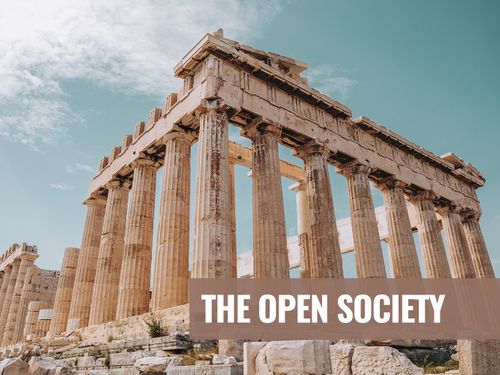What is the “open society” and who was its enemy?
Apr 13, 2022 · 3 mins read
0
Share
Freedom is not expedient
In an “open society” the citizens enjoy real personal freedoms, and the state’s role is consciously limited.
Save
Share
An open society does not seek to create a Utopia, a City of God, a great Republic or a Worker’s Paradise. Its more modest desire is to find piecemeal solutions to specific problems, and to preserve individual liberties and responsibility.
Save
Share
History has consistently thrown up new movements and states which oppose the open society and wish to return to control of the people.
Save
Share
Hitler’s invasion of Austria in 1938 spurred Sir Karl Popper to sit down and begin writing his classic The Open Society and Its Enemies (1945).
Save
Share
The new “national socialist” societies of this time required totalitarian methods to keep them together. This was somehow overlooked by their supporters.
Save
Share
Popper traced the “anti-open” society back to Plato. Plato believed the only way that society could work in a semi-perfect way was via a Republic in which wise rulers governed the uneducated majority.
Save
Share
Plato actually had good reason to dislike open societies. In the Athenian city-state in which he lived, some of his relatives had been sacrificed to the violence of the ‘democratic’ mob. Athens had also seen fit to kill off its wisest citizen and Plato’s mentor, Socrates.
Save
Share
Today we tend to think of the quality of the state as being based on the combined contributions and freedoms of its citizens. Plato took the opposite view: the individual only reaches their fulfilment in the strength and justice of the state.
Save
Share
Plato had noble intentions for the happiness of his Republic’s citizens. Yet his thinking provided a model for the modern totalitarian state, with its stated goals of justice, happiness and prosperity…at the expense of individual freedoms.
Save
Share
Popper quotes from Plato’s Laws: “Every artist…executes the part for the sake of the whole, and not the whole for the sake of the part.” Seeing society as a work of art comes with dangers. In pursuit of perfection, people become a means to your end.
Save
Share
0
